
Thomas Bourchier was a medieval English cardinal, Archbishop of Canterbury, and Lord Chancellor of England.

Thomas Rotherham, also known as Thomas (Scot) de Rotherham, was an English cleric and statesman. He served as bishop of several dioceses, most notably as Archbishop of York and, on two occasions as Lord Chancellor. He is considered a venerable figure in Rotherham, South Yorkshire, his town of birth.
Robert Stillington was an English cleric and administrator who was Bishop of Bath and Wells from 1465 and twice served as Lord Chancellor under King Edward IV. In 1483 he was instrumental in the accession of King Richard III, leading to later reprisals against him under King Henry VII.

Richard Foxe was an English churchman, the founder of Corpus Christi College, Oxford. He was successively Bishop of Exeter, Bath and Wells, Durham, and Winchester, and became also Lord Privy Seal.
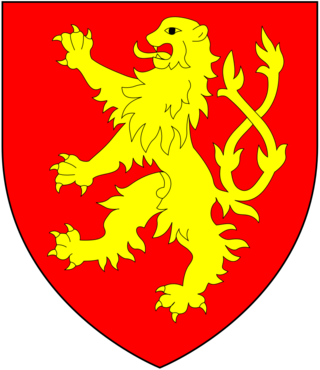
Henry Burghersh, was Bishop of Lincoln (1320-1340) and served as Lord Chancellor of England (1328–1330). He was a younger son of Robert de Burghersh, 1st Baron Burghersh, and a nephew of Bartholomew de Badlesmere, 1st Baron Badlesmere. He was educated in France.
John Chishull or John de Chishull was Lord Chancellor of England, Bishop of London, and Lord High Treasurer during the 13th century. He also served as Dean of St Paul's.

Oliver King was a Bishop of Exeter and Bishop of Bath and Wells who restored Bath Abbey after 1500.

George Neville was Archbishop of York from 1465 until 1476 and Chancellor of England from 1460 until 1467 and again from 1470 until 1471.
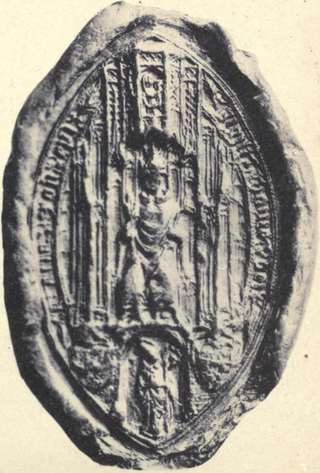
Thomas de Brantingham was an English clergyman who served as Lord Treasurer to Edward III and on two occasions to Richard II, and as bishop of Exeter from 1370 until his death. De Brantingham was a member of the Brantingham family of North East England.

John de Ufford was chancellor and head of the royal administration to Edward III as well as being appointed to the Archbishopric of Canterbury.
John of Thoresby was an English clergyman and politician, who was Bishop of St David's, then Bishop of Worcester and finally Archbishop of York. He was Lord Chancellor of England under King Edward III starting from 1349.
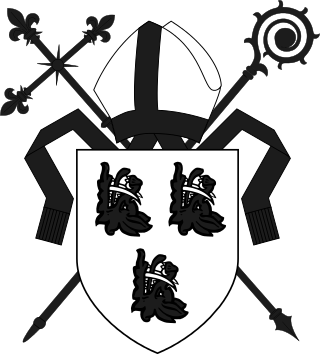
Lawrence Booth served as Prince-Bishop of Durham and Lord Chancellor of England, before being appointed Archbishop of York.
John Russell was an English Bishop of Rochester and bishop of Lincoln and Lord Chancellor.
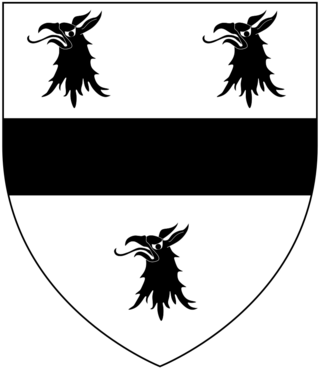
John Hales was Bishop of Coventry and Lichfield (1459-1490). He was one of the Worthies of Devon of the biographer John Prince (d.1723).
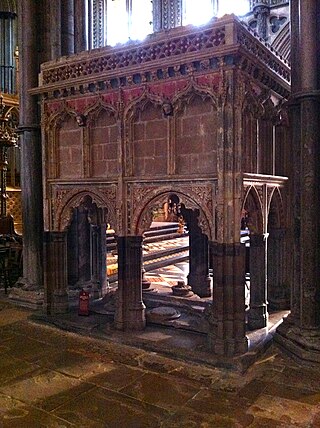
John Hotham was a medieval Chancellor of the Exchequer, Lord High Treasurer, Lord Chancellor and Bishop of Ely. He was also effective Governor of Ireland for a time.
Robert Braybrooke was a medieval Dean of Salisbury and Bishop of London.
William Ayermin was a medieval Bishop of Norwich.

John Low or John Lowe was a medieval Bishop of St Asaph and then Bishop of Rochester, in Wales and England respectively. He was an Augustinian monk and opponent of the Lollard movement.
John Sandale was a Gascon medieval Lord High Treasurer, Lord Chancellor and Bishop of Winchester.












